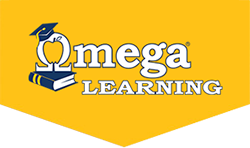Just as your teen is now asserting her independence and also negotiating a new world, she is also starting a new world of responsibility in middle school. If you are feeling chagrined at the quality of your teen’s reading choices, suggest alternatives, but consider letting him choose his own books. Kids and teens like choosing their own books — 89 percent say their favorite books are the ones they picked out themselves. In most elementary schools, students have just one main teacher for the year. In middle school, your teen will likely have a different teacher for each subject. Each teacher deals with hundreds of students. It can be easy for your young learner to slip through the cracks.
Reading Intervention
At this age, your preteen should be reading history and science books, exploring the world of research on the web — and using these sources for school assignments. She should feel confident using dictionaries, glossaries, and reading diagrams and charts. If you have concerns about your teen’s reading progress, address them as soon as you can. Why? If her reading skills are not on level, she will not be able to achieve her potential in most of her subjects.
For students who need help catching up with reading skills, schools in your district may offer reading intervention programs, such as Scholastic’s READ 180. A good intervention program can bring up reading scores up by several grade levels over the course of a single year. Then, your teen can rejoin her peers and succeed. Intervention does work.
Preparing for “Real Life Reading”
In school, your teen will be challenged to read literature, social studies, and science texts. However, students learn about “real-life” text forms mostly at home. Show and discuss cell phone and credit card bills, tax and insurance forms, medicine labels, and online “user agreements,” GPS instructions, and car registration.
By the End of Sixth Grade, Your Tween Will Be Expected to:
- Cite evidence to support analysis and draw inferences from a text.
- Determine the meanings of words and phrases, including figurative, connotative, and technical meanings.
- Integrate information from different sources (for example, an article and a chart).
- Describe how a plot of a story unfolds in episodes.
- Compare and contrast texts in different forms (drama and poetry, for example) that cover the same theme.
By the End of Seventh Grade, Your Tween Will Be Expected to:
- Determine two or more central ideas in a text and explain their development.
- Compare and contrast audio and multimedia interpretations of a text.
- Analyze the reasoning of authors and the evidence that supports their claims.
- Compare fiction and nonfiction from the same time period.
- Analyze the elements of poetry, drama, and multimedia presentations.
By the End of Eighth Grade, Your Teen Will Be Expected to:
- Demonstrate command of the conventions of standard English grammar and usage when writing and speaking.
- Analyze how a text uses comparisons, analogies, or categories.
- Analyze the structure of a paragraph and the rhetorical purpose of different sentences.
- Analyze texts that present conflicting information on the same topic.
- Contrast modern and classic stories with similar themes.
Don’t Be Concerned if These Skills Develop Erratically, Unless Your Teen:
- Reads very slowly with many inaccuracies.
- Continues to spell inaccurately; spells the same word in several different ways.
- Avoids reading and writing.
- Has poor memory skills.
- Has difficulty with planning, organizing and managing time, materials, and tasks.
Reading Activities for Ages 11-13
Encourage your older reader to pick up a book and read for pleasure with these 4 fun strategies:
1. Book Club
Start a book club with your teen Invite her to choose a book you’ll each read, and then you choose the next one. You’ll both be motivated to pick something the other will really enjoy. Don’t shy away from gross, silly, or even racy (Gossip Girl or The Demonata, for example) books that your child might pick. Showing an interest in her literary taste — whatever it might be — is a sign of respect.
2. The Behind-the-Scenes Story
As your teen looks forward into his own future, he might start to identify with various celebrities. He may want to become a pro ball player or a scientist. Help him find age-appropriate biographies so he can learn all the facts about what it takes to succeed in the fields he is interested in.
3. Reading Rewards
Middle school students are often so busy that downtime is increasingly valuable to them. That usually means video games, TV, and talking on the phone. Reading for pleasure might be the last activity they want to do. Try making a deal with your teen. Together, make a list of books she wants to read this year. If there is something your teen wants — for example, a new pair of jeans — make it contingent upon finishing one of the books on her list.
4. Mom or Dad’s Executive Assistant
Planning a vacation? Ask your teen to do some legwork on the Internet. Ask him to research accommodations, driving routes, bus or plane schedules, or other necessary planning tasks. He will take pleasure in helping to make decisions for the family. You can translate this activity into research for buying a new television or finding a new public park to visit.
Source: https://www.scholastic.com/parents/books-and-reading/books-and-reading-guides/raise-reader-parent-guide-to-reading-ages-11-13.html

